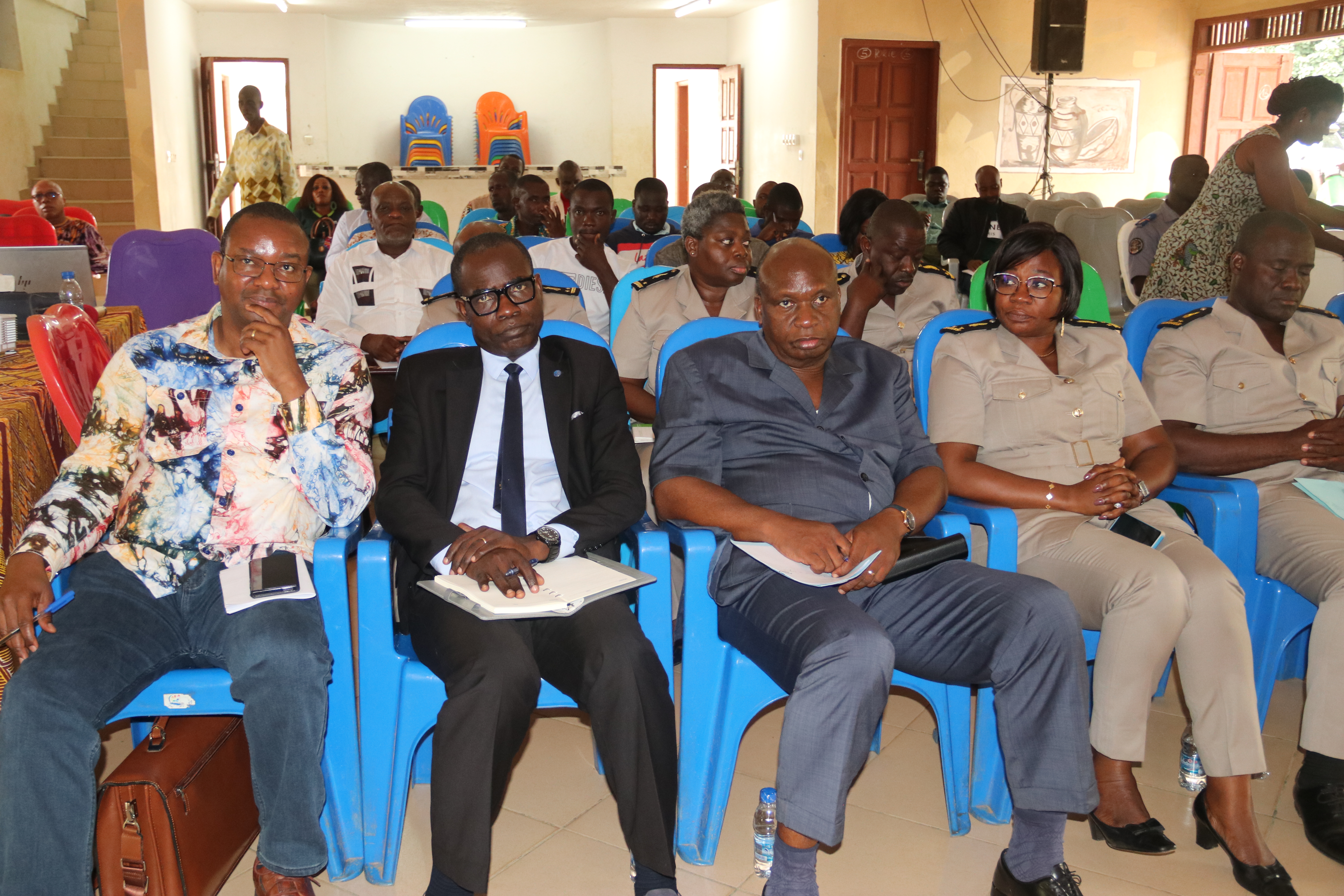News
Empowerment of rural communities for sustainable natural resource management and food security in Côte d'Ivoire

On Wednesday 26 April 2023, the official launch workshop of the FMTE Voluntary Nature Reserve Rural Empowerment and Food Security Project took place. This project aims to sustainably support the biodiversity conservation framework.
It is in line with the international cooperation strategy 2021-2024 of the Swiss Agency for Development and Cooperation (SDC), which is partially financing the project. This project links 2 regions and 2 sites, the Tanoé-Ehy Swamp Forest (TIAPOUM) and the school farm of Central Switzerland (BRINGAKRO). The project has two complementary components: on the one hand, it aims to empower rural communities in terms of biodiversity protection, and on the other hand, it aims to professionalise the farming profession and improve their practices. The project thus makes it possible to fight poverty through food self-sufficiency, improve the income and well-being of rural communities and improve the resilience of vulnerable groups in a context of massive deforestation and climate change.
By preserving the quantity and quality of ecosystem services for the sustainability of development patterns in two regions with high rates of agricultural migration, the AMR project will achieve 3 main objectives :
- The consolidation of the long-term conservation of the WFTL for the benefit of the riparian communities through the sustainable improvement of their living conditions.
- The professionalisation of the farming profession by using the Bringakro farm-school (central Côte d'Ivoire) to train cohorts capable of prospering in agricultural entrepreneurship while meeting agronomic and ecological requirements.
- Stimulating the sharing of experiences between beneficiaries from both regions for mutual enrichment.
The sustainability of the development schemes developed in this project in these two regions should also eliminate the seeds of land conflicts that have been observed in other regions of Côte d'Ivoire when access to land and other natural resources becomes problematic and their scarcity leads to tensions and clashes.
The project will be structured in two workpackages: one around the conservation of the FMTE and the other around the dual agronomic training at the Bringakro research station.
Given its scope, complexity and the number of people directly involved, national and international coordination and synergy is essential.
The community conservation component of the WFWP will benefit from collaboration with WAPCA Ghana (West African Primate Conservation Action), an international NGO that is piloting a similar initiative in Ghana.
In addition, the NGO SOS Forêts and ACB-CI (Action pour la Conservation de la Biodiversité en Côte d'Ivoire), which have proven expertise in the implementation of conservation projects and support for local development, will be among the actors in this coordination.
The dual training component at the agricultural research station will be conducted in collaboration with the NGO Sinzénou-Djanfouè, a development NGO that brings together indigenous and Swiss people who have worked in the region in the past. It is dedicated to the empowerment and sedentarisation of the youth of the region (Central Côte d'Ivoire).
This phase of the project, which began in August 2022, will end on 31 December 2025.
The fruitful exchanges that took place after the presentations between the participants, the authorities, the CSRS researchers, the populations and notabilities, etc. made it possible to explain the scope, the complexity and the very strong societal impact on these two regions.
The steering committee will be composed of the CSRS, the Swiss Embassy in Côte d'Ivoire, the SDC, the DEPN (Direction de l'Agriculture et du Développement Rurale) and the Conseil Régional du Sud-Comoé, the MINADER (Ministère de l'Agriculture et du Développement Rural) and the Conseil Régional de Toumodi.
This project will have a very strong beneficial impact on many people, the number of beneficiaries is estimated at :
- For workpackage 1:
- Awareness raising 3000 - 9000 people (men women and children)
- Agriculture 200 -200 people
- Value chain development: 190 -1900 people (women and men)
- Capacity building of community association board members: 160 -1600 people (men and women).
- For workpackage 2:
- The 220 young people trained as well as their households, i.e. about 1000 people.
Indirect beneficiaries include local authorities, state structures in charge of agriculture, environment and development, among others.
AKA/Celcom